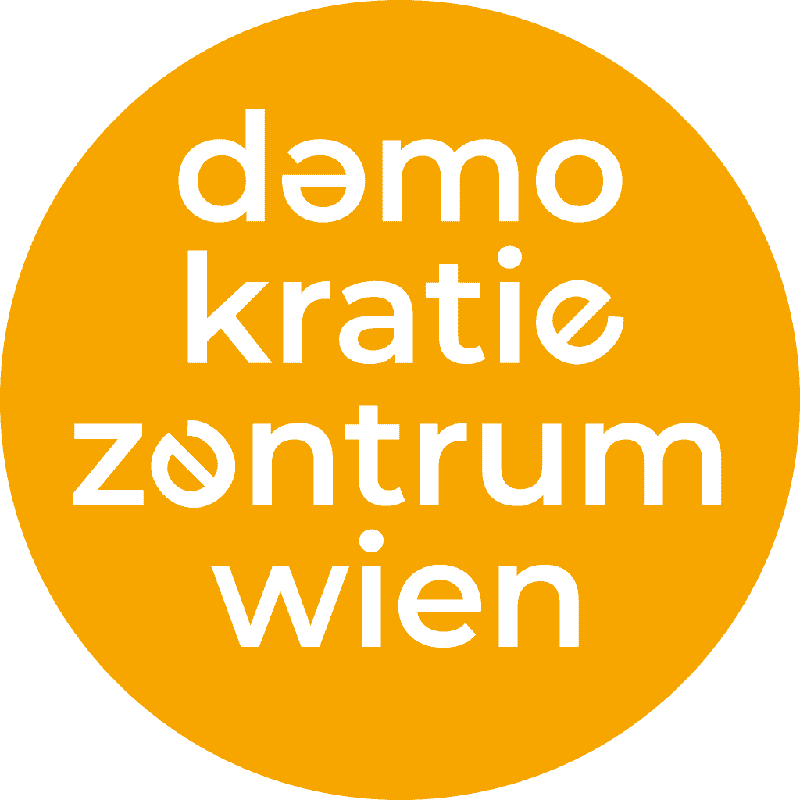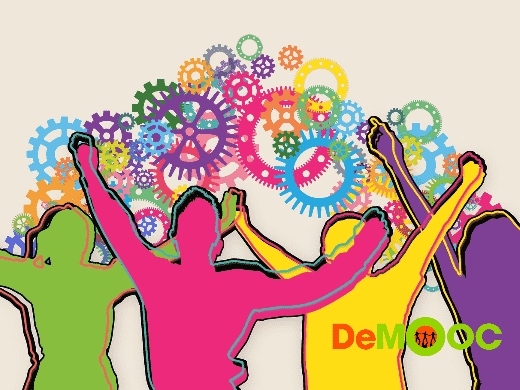


DeMOOC: Democracy and Participation – Political involvement and participation in everyday practice
Democracy Centre Vienna
Univ.-Prof. Dr. Dirk Lange, Stefanie Fridrik, BA BA MA and Nicola Nagy, BA MA
About
General Course Information
Welcome to the in-depth course “DeMOOC: Democracy and Participation – Political involvement and participation in everyday practice” of the Demokratie MOOC (DeMOOC)!
What is the Demokratie MOOC?
The MOOC series “Demokratie MOOC” - DeMOOC for short - is a free online course series for openly accessible and digital democratic political education for adults, which is being implemented in a cooperation between the Association of Austrian Adult Education Centers and the Democracy Center Vienna. The DeMOOC is offered in several modular self-study courses and runs without a time limit, so that participation is possible regardless of time and place. The courses in the DeMOOC series help participants to build up a basic knowledge of democracy, politics, political processes and social structures so that they can integrate this knowledge into their own lives. The various main topics are always related back to issues relevant to democratic politics in order to promote the strengthening of critical and responsible citizenship.
Further information on the MOOC series “Demokratie MOOC” can be found at:
Who is this course aimed at?
The MOOC “DeMOOC: Democracy and Participation – Political involvement and participation in everyday practice” is aimed at teachers and multipliers who would like to delve deeper into the topic of participation in the context of democracy education in order to integrate it into their educational work. For this purpose, the course not only offers a professional overview of forms and models of political participation – especially with reference to everyday practice – but also provides materials and methods for teaching. Thus, on the other hand, it addresses learners who want to get to know different aspects of the topic as well as concrete (political) participation possibilities.
Although the MOOC is thematically linked to previous courses in the DeMOOC series, it can be completed independently of them. You will find an introductory video to the DeMOOC embedded in the first unit of the basic course part 1:
Content
Course Content
The in-depth course “DeMOOC: Democracy and Participation – Political involvement and participation in everyday practice” offers
participants a specialized, in-depth treatment of content from the subject area
of civic education, democracy building and participation. The MOOC is based on
a broad concept of participation that goes beyond conventional forms of
participation such as participation in elections or instruments of direct
democracy such as petitions for referendums, public opinion polls or referendums.
The aim is thus to tap into different forms of participation in order to be
able to perceive political participation as part of one’s own everyday
practice.
Course Goals
By completing the courses in the DeMOOC series, participants should be able to develop a deeper understanding of democracy, politics and society at various political levels in order to strengthen their own access to politics and experience their own active participation in the political system. The aim of the DeMOOC is to strengthen political education in adult education, in extracurricular and school education, but also among generally interested people. The DeMOOC is therefore particularly suitable for multipliers, course planners, teachers, social workers, educators and anyone interested in the field of civic education. The programs in the “Initiative Erwachsenenbildung” as well as many other course and offer areas in adult education can also benefit from the DeMOOC.
In the context of the in-depth course, the participants deal with different approaches and courses of action in relation to the topics of participation and involvement. The aim is to provide the participants with comprehensive perspectives and reflections on the diverse possibilities of political and social participation in and for democracies. In this way, they are strengthened to grasp the importance of everyday cultural and political spaces of negotiation for democracy, which in turn supports their self-image as an active part of a democratically constituted society and politics. In addition to a basic factual understanding of participation processes and modalities, the participants of the MOOC also receive impulses and material for the thematization of this complex of topics in their own educational work. For this purpose, didactic basics for adult education are offered.
Previous Knowledge
No previous knowledge is necessary.
Course Procedure
The MOOC consists of four units that build on each other and offer content-related and methodological links to each other. Each unit is divided into subsections and contains explanatory video(s) and information texts as well as tasks and a didactic preparation of the topics. Each unit ends with a quiz and a discussion forum. Unit 1 represents the thematic basis and the most comprehensive lesson of the course. Unit 2 to 4 build on this and represent more in-depth content (with a lower workload).
Unit 1: On the concept of participation: Forms and models of democratic participation and involvement
Workload: approx. 5 hours
Unit 2: Participation and Citizenship Education
Workload: approx. 3 hours
Unit 3: E-Participation: Participation formats in digital space
Workload: approx. 3 hours
Unit 4: Cultural and social participation in democracy
Workload: approx. 3 hours
The units are activated individually on a weekly basis and are then freely available as a self-study course for an unlimited period of time.
Certificate
For active participation in the course, upon
completion, an automated certificate will be issued, which will include your
username, the course name and the completed units. It should be noted that this
is only a confirmation that the user has correctly answered at least 75% of the
self-assessment questions (multiple choice quiz) asked.
Licence
Unless otherwise indicated, the content provided
in the course is made available under the following license: CC BY 4.0 Demokratiezentrum
Wien. The content may be used for educational and other non-commercial purposes
on the condition that the following name is cited as the source: Demokratiezentrum
Wien. External linked materials, videos etc. may be excluded from the Creative
Commons license. Please note the applicable regulations.
Course Instructor
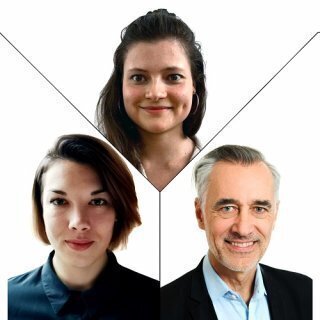
Univ.-Prof. Dr. Dirk Lange, Stefanie Fridrik, BA BA MA and Nicola Nagy, BA MA
Univ.-Prof. Dr. Dirk Lange is a university professor for didactics of civic education at the University of Vienna. He has headed the Demokratiezentrum Wien since 2018 and is director at the Institute for Didactics of Democracy at the University Hannover. For many years, Dirk Lange was federal chairman of the German Association for Civic Education (DVPB) and director of the Agency for Adult and Continuing Education in Lower Saxony. He has varied international experiences, among others as an Honorary Professor at the University of Sydney (Australia) and as a Visiting Professor at the University of Zurich (Switzerland). His central research object is civic consciousness. His current work focuses on inclusive citizenship education, digitalization and civic education as well as global citizenship education.
Stefanie Fridrik, BA BA MA is a research associate at the Democracy Center Vienna. She conducts research in the fields of civic and cultural education, cultural policy, and critical art education. She studied art history and comparative literature at the University of Innsbruck and the University of Vienna and has also worked as an art educator in the museum and independent sector since 2018. Between 2020 and 2022 she worked as a research assistant (Prae Doc) in the research project AGONART at the Institute of Political Science at the University of Vienna. Since 2022 she is doing her PhD at the Institute for Art Education at the HFBK Hamburg and works as a research assistant at the Democracy Center Vienna. Her tasks include the conception, coordination and implementation of workshops and seminars for different target groups and the supervision of projects of democratic political education for adults in the e-learning field.
Nicola Nagy, BA MA is a research associate at the Democracy Center Vienna. She studied political science, philosophy and history at the Free University of Berlin and at Sciences Po Paris. After graduation, she worked in civic education and media education with young people and as a curator at the Friedrichshain-Kreuzberg Museum in Berlin. In 2021, she completed the Cultural Mediation course at the Institute for Cultural Concepts in Vienna. Since 2022, she has been a research assistant at the Democracy Center Vienna and at the Department of Didactics of Civic Education at the University of Vienna, where she is writing her doctoral thesis on Inclusive Citizenship Education against Social Inequality: Biographies of Viennese Youth between Experiences of Exclusion and Political Participation. Her tasks include the conception and coordination of workshops and seminars for different target groups. She is also involved in projects of democratic education for adults in the field of e-learning as well as in supporting the committee work of the FSW Client Council.
Login & Enrol Currently: 382 Participants
Free for all € 0.00
Partners
A MOOC developed and created by
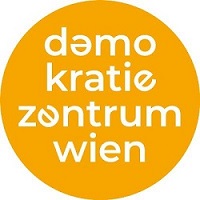
The Demokratiezentrum Wien (Democracy Center Vienna) is an independent scientific institution with tasks in democracy research and democracy education. Our empirical and theoretical research serves the scientific knowledge, the democratic political discourse and the transfer into educational offers. In the sense of a subject-oriented and emancipative civic education, our guiding idea in our educational offers is the promotion of citizens’ maturity and their ability to participate politically.
Content-related cooperation: Petra Kolb, MA studied Political Science and International Development at the University of Vienna and worked as a student assistant in the fields of Austrian Politics and European Politics at the Institute of Political Science. She has been working at the Democracy Center Vienna since July 2022 and will start as a PhD student in the field of Didactics of Civic Education at the Center for Teacher Education at the University of Vienna in March 2023. Sarah Wabl, BA BEd studied Political Science as well as German, History/Civic Education and Psychology/Philosophy at the University of Vienna. Between October 2022 and January 2023 she worked as an intern at the Democracy Center Vienna and is currently completing her MEd studies at the University of Vienna.
On behalf of
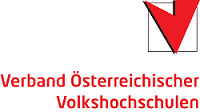
The Association of Austrian Adult Education Centers is the umbrella organization of all 256 Austrian adult education centers and one of ten associations in the Conference of Adult Education Austria, the working platform of non-profit adult education. In their more than one hundred years of existence, the adult education centers have developed and implemented important and innovative offers for political and contemporary education. Democracy education is an important concern, and the Conference of Austrian Adult Education is vehemently committed to its implementation in Austrian adult education. The Democracy MOOC is made available to all actors in adult education, further education and training.
Funded by the Federal Ministery of Education, Science and Research.
![]()
